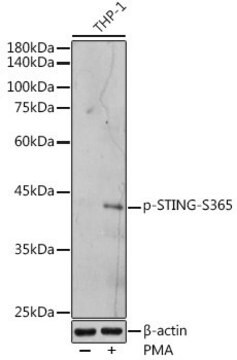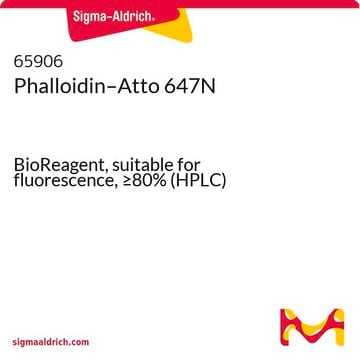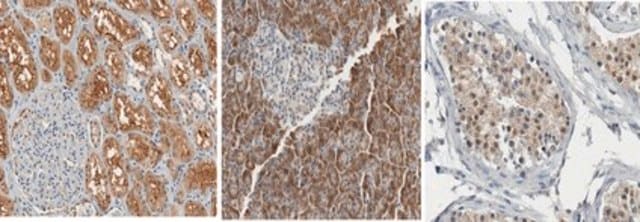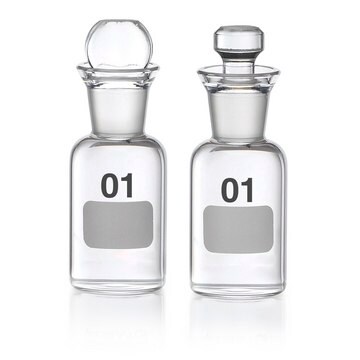추천 제품
항체 형태
purified antibody
Quality Level
클론
AF5, monoclonal
형태
liquid
포함
≤0.1% sodium azide as preservative
종 반응성
human
동형
IgG1
일반 설명
Invasive, metastatic colon cancer arises from pre-existing adenomas in both familial and sporadic cases and is characterized by the presence of multiple chromosomal alterations. In the progression from intramucosal carcinoma to invasive carcinoma, allelic loss on the long arm of chromosome 18 is frequently observed. Recently, a gene on 18q21.3 termed DCC, for deleted in colorectal carcinoma, has been isolated and shown to be deleted or mutated in both sporadic and inherited colon carcinoma whereas normal colonic tissue retained and expressed the gene. Furthermore, loss of DCC expression appears to accompany progression of adenomas to metastatic carcinoma. The inactivation of DCC suggests that it is a tumor suppressor gene. A functional role for DCC as a tumor suppressor gene is indicated by experiments demonstrating that introduction of a normal chromosome 18 into the human colon tumor cell lines COKFu or SW480.7 lacking DCC suppresses tumorigenicity. Analysis of the amino acid sequence deduced from cDNA clones indicates that DCC is a transmembrane glycoprotein consisting of 1447 amino acids with an extracellular domain having extensive similarity to neural cell adhesion molecules (NCAM), a single transmembrane segment, and a unique cytoplasmic domain. The high degree of similarity to NCAMs suggests that DCC is involved in cell-cell interactions essential to the differentiated state of the colonic epithelium. DCC expression has been observed in all tissues examined except liver with the highest level of expression in brain tissue. Alterations in DCC expression have also been observed in pancreatic adenocarcinoma and esophogeal carcinoma. However, DCC mRNA is expressed at very low levels, requiring reverse transcription followed by PCR amplification for unambiguous detection.
Purified mouse monoclonal antibody. Recognizes the ~190 kDa DCC protein.
Recognizes the ~190 kDa DCC protein in IMR32 cells.
면역원
the extracellular domain of human DCC
애플리케이션
Immunoblotting (1-5 μg/ml)
Immunofluorescence (1-5 μg/ml)
Immunoprecipitation (1-2 μg/sample)
Immunofluorescence (1-5 μg/ml)
Immunoprecipitation (1-2 μg/sample)
물리적 형태
In 0.05 M sodium phosphate buffer, 0.2% gelatin.
분석 메모
Negative Control
SW480 cells
SW480 cells
Positive Control
IMR32 cells
IMR32 cells
기타 정보
IMMUNOBLOTTING PROCEDURE
Anti-DCC (Ab-1) can be used to immunoblot proteins previously separated by sodium dodecyl sulfate-polyacrylamide gel electrophoresis and electrophoretically transferred onto nitrocellulose membranes. The proteins a
시험 성적서(COA)
제품의 로트/배치 번호를 입력하여 시험 성적서(COA)을 검색하십시오. 로트 및 배치 번호는 제품 라벨에 있는 ‘로트’ 또는 ‘배치’라는 용어 뒤에서 찾을 수 있습니다.
A genetic model for colorectal tumorigenesis.
E R Fearon et al.
Cell, 61(5), 759-767 (1990-06-01)
Y Huang et al.
Cancer research, 52(23), 6525-6530 (1992-12-01)
Loss of heterozygosity occurring on various chromosomes has been described in the majority of human tumors. The targets of frequent or consistent subchromosomal deletions are believed to be tumor suppressor genes. We examined 72 esophageal tumors (46 squamous cell carcinomas
K Tanaka et al.
Nature, 349(6307), 340-342 (1991-01-24)
Development of colon carcinomas can be associated with allelic deletions on several chromosomes, including 5q and 18q. The APC gene on 5q and the DCC gene on 18q have been identified as potential tumour suppressor genes, whose suppression contributes to
M W Höhne et al.
Cancer research, 52(9), 2616-2619 (1992-05-01)
The development of colon carcinomas is associated with allelic deletions on chromosomes 5q, 17p, and 18q. The DCC gene located on chromosome 18q21.3 codes for a potential tumor suppressor gene related to cellular adhesion receptors. We investigated the expression of
M G Dunlop
Seminars in cancer biology, 3(3), 131-140 (1992-06-01)
Due to the accessibility of the intermediate steps in the progression of colorectal cancer and to the existence of heritable susceptibility to the disease, molecular genetic analysis of colorectal carcinogenesis seems likely to answer many of the questions concerning the
자사의 과학자팀은 생명 과학, 재료 과학, 화학 합성, 크로마토그래피, 분석 및 기타 많은 영역을 포함한 모든 과학 분야에 경험이 있습니다..
고객지원팀으로 연락바랍니다.








